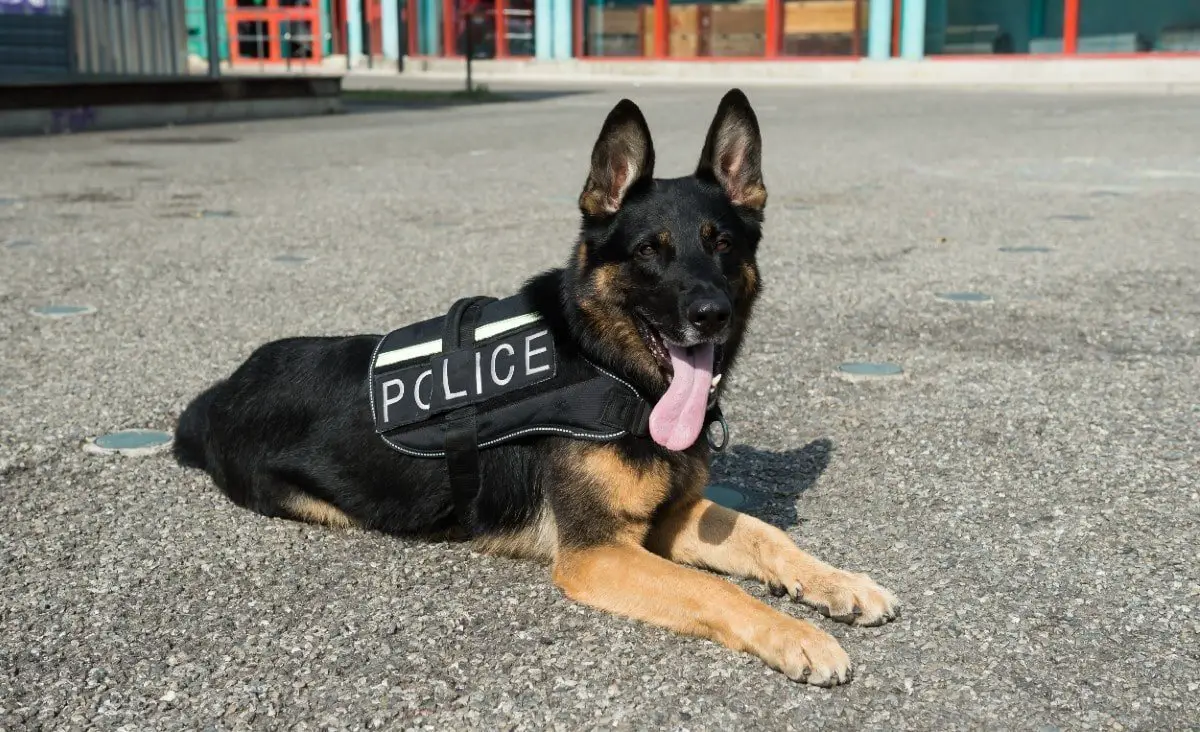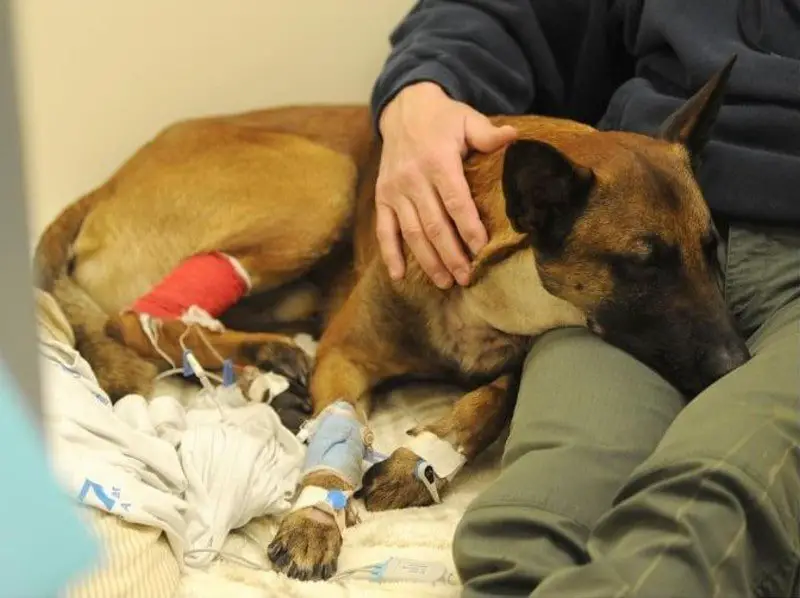Florida is leading the way to treat and care for K9 officers that are injured on the job. Officers will no longer need to scramble under duress to load and transport a four-legged team member who needs medical help.
A new law that Governor Ron DeSantis signed in June 2021, which went into effect July 2021, will allow paramedics to treat and transport police K9s that get injured in the line of duty.
On June 18th, 2021, Governor DeSantis signed into law SB 388, which the bill summary reads as follows:
“Injured Police Canines; Authorizing licensed life support services to transport injured police canines under certain circumstances; authorizing a paramedic or an emergency medical technician to provide emergency medical care to injured police canines under certain circumstances; providing for immunity from criminal and civil liability under certain circumstances, etc.”
Governor DeSantis stated the following when signing the bill into law:
“We all have a soft spot in our hearts for our four-legged friends. They’re really incredible, incredible friends.
The police use K9s very effectively. These K9s use their unique capabilities to save lives and protect our communities in Florida.
Law enforcement K-9s are often the first to put their lives on the line as they work to apprehend dangerous or armed suspects in high-intensity situations.
I’m proud to sign this legislation today to ensure they quickly receive the care needed to recover.”
Other states have been reviewing similar legislation, much like the one passed in Florida earlier in June.
Bill S.1431, also known as “Nero’s Law,” was reportedly introduced by Massachusetts Representative Steven Xiarhos.
The name “Nero’s Law” comes from a police K9 bearing the same namesake, who was seriously injured in a 2018 incident where K9 Nero survived, but his handler Yarmouth Police Sergeant Sean Gannon, did not.
If this legislation were to come to fruition, it would afford what is described as “humane transportation of K9 partners” by EMS first responders. Effectively, this bill, if passed, could enable expedited transport to needed veterinary services for K9s injured on duty.
The bill includes service dogs, accelerant-detection dogs, and search-and-rescue dogs.
K9s that wind up falling under EMS care following an incident would allow EMS responders the authority to perform life-saving measures like “opening and manually maintaining an airway,” “giving mouth-to-snout or mouth-to-barrier ventilation,” “administering oxygen,” and “immobilizing fractures.”
The bill further notes that “an EMS provider may require a member of the law enforcement department or agency to accompany the police dog during transport.”
The MSPCA, which is an organization that promotes the ethical treatment of animals and things of that nature, made mention of the incident with which this bill is inspired by:
“The town of Yarmouth suffered an incredible tragedy in April of 2018 when Sergeant Sean Gannon was killed in the line of duty. Also injured in this vicious attack was Gannon’s canine partner, Nero.”
“Nero suffered life-threatening injuries and was unable to be rescued due to existing state law that prohibits working animals from being treated or transported by emergency personnel.”
“Instead, Nero had to wait nearly four hours before a retired K9 police officer could arrive on the scene to retrieve Nero and help with his injuries before he was driven to the emergency veterinary hospital.”
Bill sponsor Rep. Xiarhos happened to have been Sergeant Gannon’s deputy police chief during the date of the incident where Sergeant Gannon was killed, and K9 Nero was injured.
On April 12th, Rep. Xiarhos called for the bill to be passed in light of the third anniversary of Sergeant Gannon’s death:
“I will never forget the sight of K9 Nero covered in blood and fighting for his life after being rescued by the brave police officers on that horrible day.”
“K9 Nero never gave up trying to protect his fallen hero. Now it is time for us to fight for him and all the devoted police dogs across our Commonwealth who serve and protect their handlers and all of us, now and for generations to come.”
K9 officers are loved by their partners and are valuable members of a law enforcement department. Providing immediate medical care to our brave and heroic 4-legged officers should be a no-brainer.
Every state needs to follow Florida’s example to protect the K9 officers who assist in protecting their communities.
h/t Law Enforcement Today
h/t Fox13News.com

























